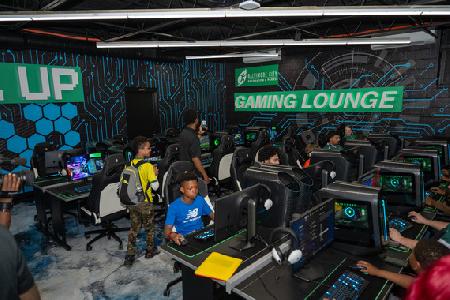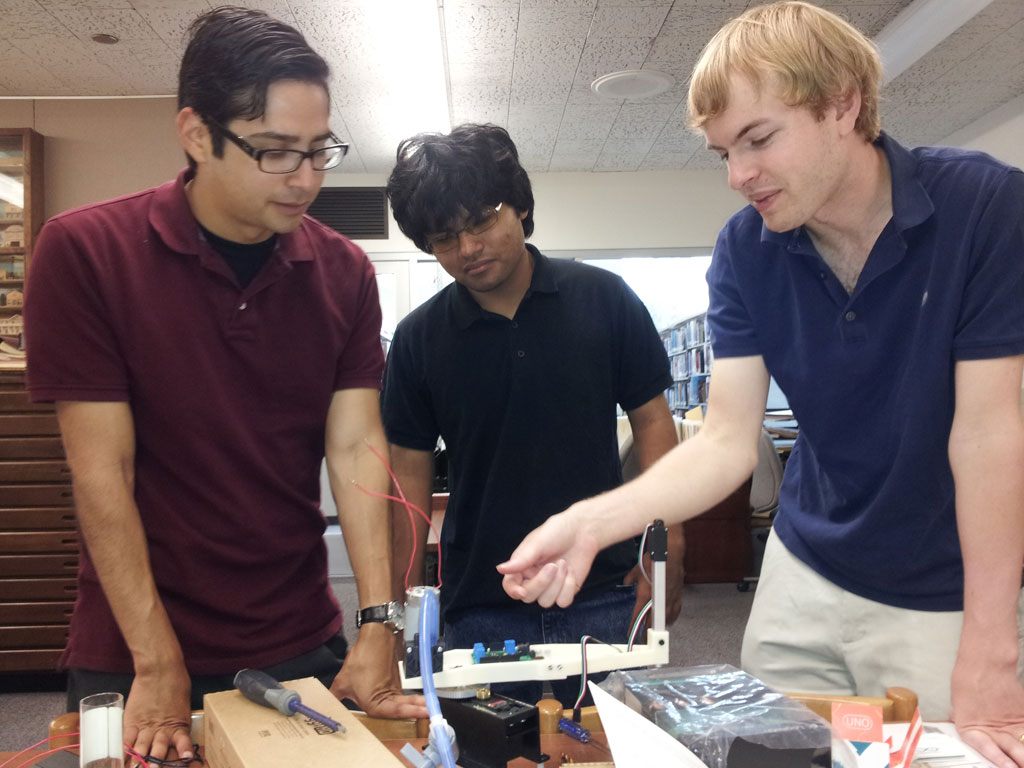Gado, the robot that has scanned more than 100,000 old photographs inside the archives of the Afro-American newspaper, is heading west.
The San Francisco Bay Area, to be precise, where Gado designer Thomas Smith and wife, Amy, will be moving to in the next month — and where, if the Smiths’ plan materializes, a second Gado office will be stationed by year’s end, giving the Johns Hopkins University graduates’ Project Gado digital archiving initiative operations in Baltimore and Silicon Valley.
“The idea is to use Project Gado as a way to create cross-regional collaborations between organizations, individuals and institutions here in Baltimore, and institutions in Silicon Valley,” said Smith, now in his mid-20s, who assembled the first version of his Gado scanning robot — an unwieldy, 100-pound behemoth — from Arduino open-source hardware, and open-source software, for less than $500.
In June 2011, shortly after graduating, Smith built a less cumbersome version of the Gado robot (think: something the size of a Printrbot 3D-printer kit that users piece together) with grant money from the Abell Foundation.
Watch a scanning demo of the Gado 2 robot:
Now Project Gado employs three people full-time, including Smith and Amy, and one part-time. And since building the lighter Gado 2 robot, he and Amy have grown the overall project in phases, three in total so far, whereby they’ve paired the scanning technology with a variety of heritage and archival efforts underway in Baltimore city.
- In addition to assisting the Afro-American with digitizing its archives, Project Gado put on a family scanning day at the Reginald F. Lewis Museum downtown to teach people how to digitize their family photos.
- Direct funding from the Sheridan Libraries at Hopkins helped support the work of a summer intern, who not only learned about digitization and archiving, but also helped Baltimore Heritage create a historic walking tour of East Baltimore that’s downloadable to smartphone. (Download the Baltimore Heritage app here.)
- Smith estimates Project Gado has “connected to probably 100 organizations in the Baltimore region” over the last two years.
But Baltimore wasn’t the only place to embrace the Gado robot. Phase Three, which ended in July, was “about building communities in Baltimore and all over the world,” Smith said, and “creating these little pockets where people are using our technology.” Count Boston, New York City, Silicon Valley and Aalto University in Finland as locations where librarians, preservationists and full-time researchers are using the Gado robot.
In Santa Ana, Calif., for instance, the public library purchased a Gado 2 robot after the chief archivist, Manny Escamilla, wrote a 17-page paper about it, according to Smith, who traveled there in June to assist Escamilla with the set-up.
Phase Four, which is just getting started, is about connecting these different groups and organizations using the robot. Sheridan Libraries has already pledged $15,000 to the effort.
“Why not use Gado as the catalyst for connecting these different innovation communities and cultural heritage communities together? Let’s create connections between Baltimore and these other places,” said Smith.
Smith, in other words, isn’t charting the course of the Prodigal Son, absconding The City that Reads for less humid climes on the California coast, only to one day remember where he came from and beg Baltimore for a fresh round of Facebook Likes.
“In order to scale, we need to have access to other locations,” he said. “[Silicon Valley is] just the first place where we’ve been able to build these strong relationships.”
And he and Amy have had plenty of help from Baltimore along the way. While Project Gado is itself a for-profit business operation, Phases One and Two were assisted with grants from the Abell Foundation, for which Johns Hopkins served as the project’s fiscal sponsor. The Emerging Technology Center (ETC) was Gado’s fiscal sponsor for Phase Three, and will be again for Phase Four.
“It’s a super cool project. It’s exactly the kind of thing [we] should be involved in,” said Neil Davis, vice president of operations at the ETC.
Money that’s funneled directly to Gado, like the funding received via the Sheridan Libraries, is allocated to the development of new scanning technologies — forthcoming, Smith said, “is a software platform that allows you to do metadata animation of historical photos.” Money that comes to the project from foundation grants via fiscal sponsors pays for the work Project Gado does with preservation organizations and libraries.
Over time, as long as the grant money keeps flowing, Project Gado will eventually branch out with dedicated staff to the other cities in the U.S. using the robot for digitizing work. The full-time staff member remaining in Baltimore will take over operations here.
So while the husband-wife duo behind Gado are leaving for Silicon Valley, Smith is quick to point out that they “don’t want to leave Baltimore.” Blame it on the robot.
But there’s something else to be gained, he thinks, by establishing a second Gado office in the Bay Area.
“In order for Baltimore to be better connected to the broader world of tech, there needs to be those dense connections outside of the region,” said Smith. “I want to be able to be one of the people to make that happen.”
Join the conversation!
Find news, events, jobs and people who share your interests on Technical.ly's open community Slack

Baltimore daily roundup: Medtech made in Baltimore; Sen. Sanders visits Morgan State; Humane Ai review debate

Baltimore daily roundup: An HBCU innovation champion's journey; Sen. Sanders visits Morgan State; Humane Ai review debate

Baltimore daily roundup: The city's new esports lab; a conference in Wilmington; GBC reports $4B of economic activity



